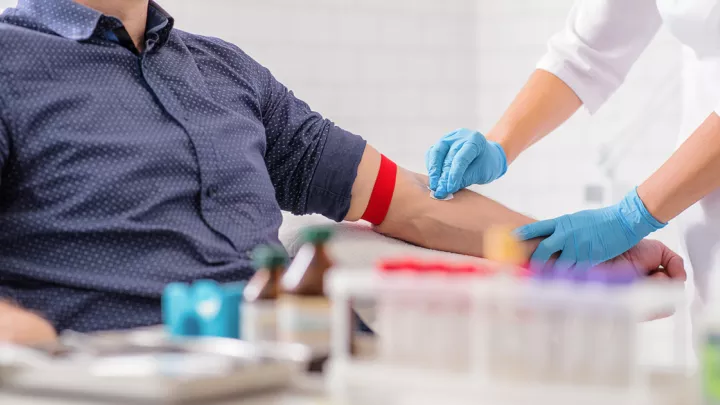Are immunotherapy and chemotherapy the same thing? How cancer treatments work

As cancer treatments continue to advance and new therapies are introduced, it's easy to get lost in your search for information. To help you better understand the differences between specific cancer treatments and how they work, we spoke with medical oncologist Bhavina Sharma, MD, MPH.
What is the difference between chemotherapy and immunotherapy?
Chemotherapy
"Chemotherapy are drugs designed to directly attack all rapidly dividing cells in the body, including cancer cells," explains Dr. Sharma. "It relies on the idea that cancer cells reproduce much faster than most healthy cells in our body."
Chemotherapy drugs can be given by infusion or in pill form. Unfortunately, these drugs can't tell the difference between cancerous cells and fast-growing healthy cells like the gastrointestinal tract and hair follicles, leading to side effects such as diarrhea and hair loss. Thankfully, recent advancements in chemotherapy have helped lessen side effects such as nausea, pain and lethargy.
Is targeted therapy the same as chemotherapy?
Targeted therapy are special drugs designed to target differences within cancer cells that help them thrive. Unlike chemotherapy, targeted therapy drugs actually change the inner workings of the cancer cell. Because targeted therapy focuses on the part of the cancer cell that makes it different from the normal, healthy cell, it often has fewer side effects than standard chemotherapy treatments.
Immunotherapy
Immunotherapy is very different than chemotherapy in that it helps our immune system to find and kill cancer cells.
"Cancer cells are abnormal cells that have formed in our body because of cell damage or mutations," explains Dr. Sharma. "Cancer cells hide from your immune system by shutting down certain pathways of the immune response. Immunotherapy unlocks those pathways so your immune system can recognize and remove the cancer cells."
Are cellular therapy and stem cell therapy the same thing?
Cellular therapies are treatments that improve the body's ability to fight cancer. "Stem cell therapy falls under the umbrella of cellular therapy," explains Dr. Sharma. "It uses stem cells to mount an immune response to attack your cancer cells."
Stem cells from blood and bone marrow can be used in transplants. These stem cells can either come from a matched donor (allogeneic) or from the patient themselves (autologous).
Is CAR T-cell therapy a type of cellular therapy?
Chimeric antigen receptor therapy or CAR T-cell, is a type of cellular therapy.
"T cells are white blood cells that help our bodies fight infection and cancer," explains Dr. Sharma. "With CAR T-cell therapy, your own T cells are collected from your blood. These T cells are modified to recognize cancer as a foreign cell and attack it."
CAR T-cell therapy has been approved by the Food and Drug Administration to treat lymphoma, leukemia and multiple myeloma.
What is hormone therapy for cancer?
Hormone therapy slows or stops the growth of cancer that uses hormones to grow. It is also called hormonal therapy, hormone treatment or endocrine therapy. Hormone therapy is recommended for cancers that are hormone-receptor positive, such as certain breast and prostate cancers. It can't be used in cancers that don't carry hormone receptors.
"Hormone therapy can be used for both early stage and metastatic hormone-receptor positive breast cancers," explains Dr. Sharma. "In patients with early-stage breast cancer, it is used after surgery to help reduce the risk of the cancer coming back."
What about other types of cancer treatments?
Chemotherapy, immunotherapy, targeted therapy, and hormone therapy are just a few of the treatments we use to treat cancer. Many of these cancer treatments can be combined with others like cancer surgery and radiation therapy. Every person's journey through cancer is different. Your oncology team will help you sort through the best therapies available to create your treatment plan.
The information in this article is for information purposes only. For specific questions regarding your medical condition or treatment plan, please consult with your doctor directly. To schedule an appointment with a Nebraska Medicine cancer specialist, call 402.559.5600.







